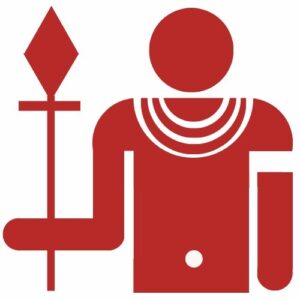Kenya Police officers Tuesday 1st August stopped a Worldcoin registration center from operating at the Kenyatta International Conference Center KICC in Nairobi Kenya due to security concerns after thousands of Kenyans showed up for the continuing controversial Iris scans.
Worldcoin had earlier announced that it would have a smooth proof of personhood verification process for all eligible to participate, at a two-day Worldcoin event held at the KICC on the 29th and 30th of July weekend. However, other verification locations were temporarily paused in support of the two-day event causing to congestion.
Worldcoin had wanted to use the event for verification for World ID, educational activities provided by partners from across the Kenyan blockchain community on the many uses of blockchain and Web3 applications available to Kenyans. These was brought to a standstill after the local organizers received overwhelming numbers and congestion.
Worldcoin, which is being investigated in Kenya and several other markets, claims to have been designed to protect individual privacy and has a robust data protection program in place. The Worldcoin Foundation, which is behind the Iris scanning says it is committed to working with partners globally to ensure the project meets regulatory requirements, including those under Kenya’s Data Protection Act and regulations, and provides a safe, secure, and transparent service for verified humans.
Though the foundation is promising that Kenyans can be confident that their data will be treated with care and that Worldcoin will never sell their personal data. There is nothing to proof beyond promises. There is also nothing the organization is able to do to drive financial inclusion and empowering individuals across Kenya better than banks and mobile money as its own tokens have no real use cases and have to be cashed out via M-PESA. Therefore Worldcoin’s mission to create a secure, accessible, and inclusive financial ecosystem for everyone, is questionable.
At the moment, the Worldcoin team is in search for a bigger venue than can accommodate its overwhelming numbers for its World ID, a proof of personhood digital password used to the Altman’s Universal Basic Income (UBI). The Iris scans take out unique hashes which will be used as unique identifiers to prove that one is human being and not an AI bot. In exchange, users in Kenya are receiving Worldcoin’s cryptocurrency token 25 WLD tokens, which is $55 or equivalent of Ksh.7800 in the local currency.
Recently, Kenya’s Office of Data Protection Commissioner (ODPC) cautioned Kenyans against Worldcoin, the new cryptocurrency offering free tokens for eyeball scanning, to verify their humanity.
“It is the responsibility of data controllers to ensure that personal data is processed in accordance with the Data Protection Act. Failure to do so not only puts individuals’ privacy at risk but also exposes an organization to legal and reputational consequences,” Data Commissioner Immaculate Kassait said in the statement sent to TechMoran.
But nothing seems to stop Worldcoin’s CEO Sam Altman in Kenya, who wants to provide every individual on earth with access to the global economy through a verified digital identity, free cryptocurrency tokens, and a crypto wallet. According to him, the concept is aimed at inclusivity and accessibility, regardless of socio-economic status or traditional banking access.
Launched out of beta on July 24 2023 in Kenya, Worldcoin rewards users with WLD tokens after they verify their humanity by scanning their eyeballs at designated locations in 35 countries, including Kenya. Excited by the prospect of free money, Kenyans have already earned significant amounts by signing up and scanning their irises with some using the free tokens to purchase USDT, which they later convert into Kenyan shillings.


